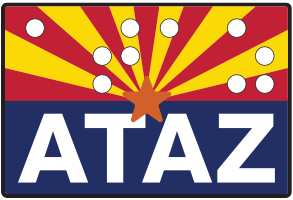Useful links PDF version 465kb, 1 page
Overview
According to the CDC (Centers for Disease Control and Prevention), “U.S. figures show 1 in 4 US adults now live with a disability, with cognitive disability most common in younger adults and mobility disabilities most common for others.” Cognition includes: “serious difficulty concentrating, remembering, or making decisions”.*[ref] Diagnoses typically include but are not limited to: Learning Disabilities, Traumatic Brain Injury, disorders that affect Executive Function, Developmental and Intellectual Disabilities, certain mental illnesses, and many more. Some conditions such as Dyslexia, Dyscalculia and Dysgraphia cause individuals to perceive visual and/or auditory information differently than is actually presented. Other conditions may affect processing speed, memory and concentration. Merriam Webster defines cognition as, “the activities of thinking, understanding, learning, and remembering”. Cognitive disorders range from conditions such as Mild Cognitive Impairment to Dementia.
Medical Aspects
Experts in the area of cognition are typically from the psychology professions including developmental psychology, clinical psychology and school psychology and neuropsychology. Diagnoses such as ADHD are frequently clinically treated with medications which are typically prescribed by a psychiatrist, often with a referral from the psychologist. Other conditions may be treated by specialty therapists such as occupational therapists and/or special educators. Persons with a diagnosis of developmental disability, particularly Cerebral Palsy, may or may not have cognitive impairment.
Functional Limitations
Cognitive disorders primarily affect learning and functional applications of reading, writing, math, processing information (i.e. visual or auditory information) and self-management, self-regulation and self-monitoring.
Assistive Technology
There are many new assistive technology services for persons with cognitive limitations, as listed below. It frequently falls to the family or advocate/s to bring together medical experts with assistive technology experts. Literacy supports such as text reading can present written material on the computer in a person’s stronger mode such as auditory reading for persons who struggle with visual information and/or alternative colors, fonts, sizes or windowed for visual access. Speech recognition has also advanced to support literacy for persons with cognitive/intellectual challenges. Apps for mobile devices including watches, phones and tablets can support time management, attending behaviors and other limitations in executive function.
Assistive Technology to support Cognition Function
Reading:
- Text reading software/apps Alternative Format players and media
- Grammar and Spelling checks
Math Supports:
- Manipulatives
- Specialty Math software Speech recognition
Executive Function:
- Apps for memory and attending
- Scheduling software
- Task sequencing apps/devices
 ATArizona.com
ATArizona.com 